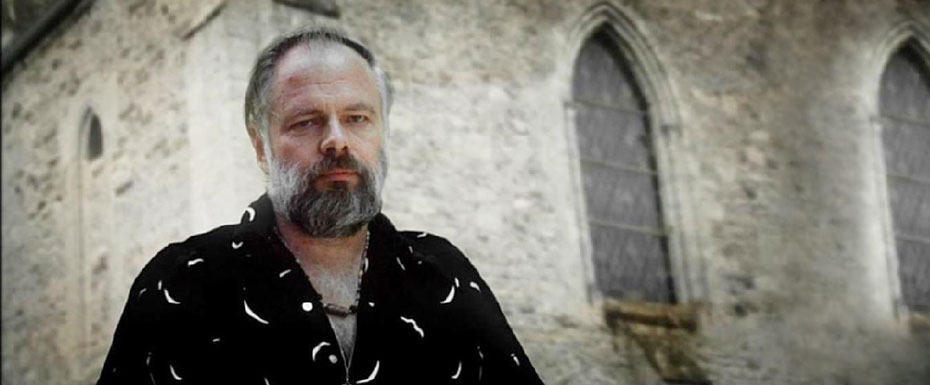
This time I don’t care whether you are a fan of science fiction or not because, in my opinion, Philip K. Dick’s novels go far beyond the genre. He can be called one of the most important writers and thinkers of the 20th century without exaggerating. I wanted to make this blog for everyone who doesn’t know about Dick’s works, those who know him only as an author of “Blade Runner” and “The Man in The High Castle” because Dick’s heritage deserves a closer examination.
Creative Career
During his short but productive life, Philip k. Dick wrote 44 novels and more than 120 short stories. He decided to become a writer at 22; at the same age, Dick wrote several short stories and his first novel. However, the young writer still had to go through the long and lonely road towards recognition. Some of the first Dick’s novels were printed in popular sci-fi magazines for symbolic compensation and in shorthand. The first Dick’s novel that managed to make it to the bookshop shelves without edits was published in 1957 – “The House That Jones Built,” which was the first success for an author. The first big success came to Philip Dick when he received a Hugo Award for his now-cult novel “The Man In the High Castle” in 1963. By that time, Philip Dick was 35 years old, and he already was an author of 21 novels and multiple short stories.
In 1965, Dick received a Nebula nomination for his another now-cult book – “The Three Stigmata of Palmer Eldritch.” In 1966, Dick published his most famous work – “Do Androids Dream About Electric Ship?” which received another Nebula nomination in 1968. During the next 14 years until the author’s death, Dick wrote and published 12 novels and several short story collections, including such famous works like “Ubik,” “Flow My Tears, the Policeman Said,” “A Scanner Darkly,” “Valis” trilogy, and “The Transmigration of Timothy Archer.” In the last period of his life, Dick collaborated with director Ridley Scott to adapt his novel “Do Androids Dream of Electric Sheep?”, which later became famous as one of the greatest sci-fi movies ever made. Regretfully, Philip Dick never managed to see the adaptation of his work on the screen. On March 2, 1982, the great writer died at 52, two weeks before the “Blade Runner” premiere. Currently, 12 of Philp Dicks novels are stored in the National Library of Congress.
Themes and Inspirations
In my opinion, one of the greatest things about Philip K. Dick’s works – they do not really match the sci-fi genre, even though Dick is widely known as one of the godfathers of sci-fi literature. Even though the lion’s share of Dick’s novels deal with themes of future, technology, transhumanism, artificial intelligence, time travel, and outer space, he always puts a human being and human nature in the center of his narrative. If we try to imagine which side Dick would take in the Tarkovsky-Kubrick dispute about the idea of human nature (“Solaris” vs. “Space Odyssey 2001”), Dick would probably end up in the corner of the great Russian classic. Not the hopeless nihilist but always a thoughtful philosopher and almost a mystic, Philip Dick was always original and profound in his straightforward yet complex reflections on such themes as humanity, the human soul, God, our conscience, and our mind.
Many of Philip Dick’s novels were turned into hit movies like “Blade Runner” and “Blade Runner 2049,” “Total Recall,” “Minority Report,” “The Adjustment Bureau,” and many others. Dicks’ relatively simple and highly descriptive writing style combined with some of the boldest ideas and concepts you can find in classic or modern sci-fi literature makes his works almost priceless for a director or screenwriter. However, some of Dick’s brightest stories are still not told on the silver screen, mainly because of their complexity and transcendentality.
5 Must-Read Novels by Philip Dick
Of course, I believe that 5 novels are too little to enjoy every side of Dick’s heritage, but on the other hand, those can become a great inspiration for you to continue this fantastic journey. The present list is based on my own opinion, and I believe that those novels can give you the most comprehensive impression of the genius of the legendary Philip K. Dick. Enjoy!

- The Man in the High Castle (1961)
- Martian Time-Slip (1962)
- Do Androids Dream of Electric Sheep? (1966)
- Ubik (1966)
- Flow My Tears, the Policeman Said (1970)
P.S. And for those who will manage to cope with the top 5 and will still feel that they need some more of this great literature, here’s the bonus list.
- The World Jones Made (1954)
- Confessions of a Crap Artist (1959)
- The Three Stigmata of Palmer Eldritch (1965)
- A Scanner Darkly (1977)
- VALIS (1978)





